Showing posts with label America. Show all posts
Destination: United States of America A Travel Guide for History http://www.fallintoyesterday.com/Images-dest/us-map.jpgtravel united states of america
Traveling is the movement of men and women between relatively distant geographical locations, and can involve travel by foot, bike, automobile, train, boat, airplane, or other means, with or without luggage, and can be one way or round trip. Journey can also include relatively short stays between successive motions.
The origin of the word "travel" is most likely lost to historical past. The term "travel" may originate from the Old French word travail. According to the Merriam Webster dictionary, the first known use of the phrase travel was at the fourteenth century. In addition, it states that the word originates from Center English travailen, travelen (which means to torment, labour, strive, journey) and earlier from Old French travailler (which means to work strenuously, toil). In English we still occasionally use what travail and travails, which mean struggle. According to Simon Winchester in his book The Best Travelers' Tales (2004), the words travel and travail both discuss an even more historic root: a Roman tool of torture called the tripalium (in Latin it means "three stakes", as in to impale). This particular link reflects the extreme difficulty of travel in ancient times. Also note the torturous connotation of the word "travailler. " These days, travel may or might not be easier depending when the destination you choose (i. e., Mt. Everest, the Amazon rainforest), how you plan to get there (tour bus, cruise trip ship, or oxcart), and whether or not you decide to "rough it (see extreme tourism and adventure travel). "There's a major difference between simply being a tourist and being a true world traveler, inch notes travel writer Michael Kasum. This is, however, a contested distinction as academic work on the cultures and sociology of travel has noted.
Factors for traveling include recreation, tourism or vacationing, research travel for the collecting of information, for vacation to visit people, offer travel for charity, immigration to commence life somewhere else, religious pilgrimages and mission trips, business travel, trade, commuting, and other reasons, such concerning obtain health care or waging or fleeing war or for the enjoyment of traveling. Travel may occur by human-powered transport such as walking or riding a bicycle, or with vehicles, such as public transport, automobiles, trains and airplanes.
Motives to travel include:
- pleasure
- leisure
- discovery and exploration
- getting to know other civilizations
- taking personal time for building interpersonal relationships
Travel may be local, regional, national (domestic) or international. In some countries, non-local inner travel may require an internal passport, while international travel typically requires a passport and visa. A new trip may also be part of a round-trip, the industry particular type of travel where a person moves from one location to another and returns.
Once difficult, slower and dangerous, travel has tended to become easier, quicker, and much more frivolous in the course of background. The evolution of technology such as horse tack and bullet trains has contributed to this trend.
Regulators emphasize the benefit of taking precautions to ensure travel safety. When traveling in foreign countries, the odds favor a safe and incident-free trip, however, travelers can be subject to difficulties, crime and violence. Some safety considerations include being aware of one's surroundings, keeping away from being the target of a crime, leaving copies of one's passport and itinerary information with trusted people, getting medical insurance valid in the country being visited and registering with one's national embassy when being released on the in a foreign country. Many countries do not recognize drivers' licenses from other countries; however most countries take international driving permits. Auto insurance policies issued in one's own country are often invalid in foreign nations, in fact it is often a requirement to obtain non permanent automobile insurance valid in the country being visited. That is also highly recommended to get oriented with the driving-rules and -regulations of location countries. Wearing a seat belt is extremely recommended for safety reasons; many countries have penalties for violating seatbelt laws.
United States of America » Travel
 https://notfornothin.files.wordpress.com/2012/11/map_usa.jpg
https://notfornothin.files.wordpress.com/2012/11/map_usa.jpgUnited States of America Travel Guide and Travel Information
Cambridge Travel, United States of America Find holiday information
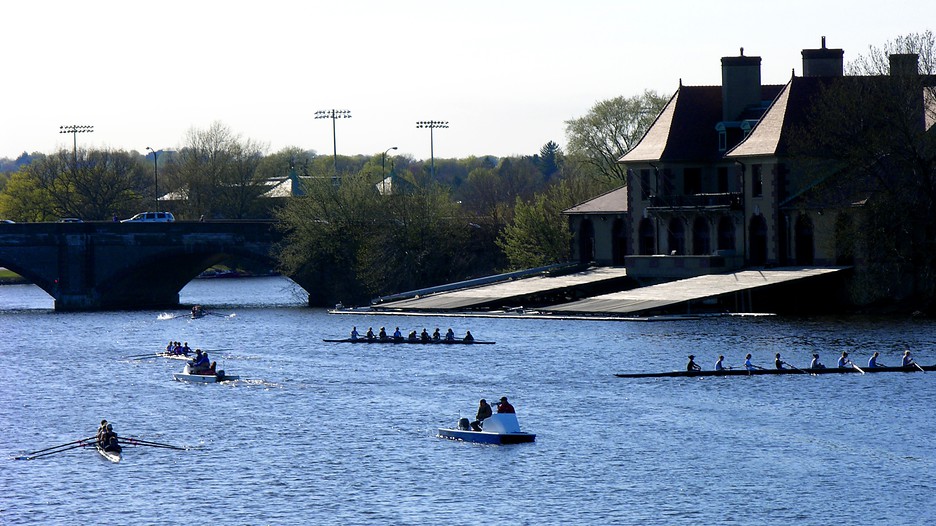 https://images.trvl-media.com/media/content/shared/images/travelguides/destination/8093/Cambridge-Town-59195.jpg
https://images.trvl-media.com/media/content/shared/images/travelguides/destination/8093/Cambridge-Town-59195.jpgMyrtle Beach Travel, United States of America Find holiday
 https://images.trvl-media.com/media/content/shared/images/travelguides/destination/601685/Myrtle-Beach-21351.jpg
https://images.trvl-media.com/media/content/shared/images/travelguides/destination/601685/Myrtle-Beach-21351.jpgOIP.M2ee72695dd02efabb4ae30d1c1144275o0
6D598ECD78789D4C6F4AF4F8F15EEE1861A01EB5Ehttp://www.fallintoyesterday.com/destinations-us.html
Embed Our image to your website
ThumbnailEmbed Our image to a Forum
ThumbnailImagefallintoyesterday.com
Destination: United States of America A Travel Guide for History
North America Travel Map – showing the famous tourist attractions of http://images.mapsofworld.com/travel/2013/03/north-america-travel-map.jpgtravel north america
Travel is the movement of folks between relatively distant physical locations, and can include travel by foot, bicycle, automobile, train, boat, aircraft, or other means, with or without luggage, and can be one way or round trip. Travel can have relatively short stays between successive movements.
The origin of the word "travel" is most likely lost to background. The term "travel" may originate from the Aged French word travail. According to the Merriam Webster dictionary, the first known use of the word travel was in the fourteenth century. In addition, it states that the word arises from Middle English travailen, travelen (which means to torment, labour, strive, journey) and earlier from Old French travailler (which means to work strenuously, toil). In The english language we still occasionally use what travail and travails, which mean struggle. In accordance to Simon Winchester in his book The most effective Travelers' Tales (2004), the words travel and travail both discuss an even more historic root: a Roman tool of torture called the tripalium (in Latin it means "three stakes", as in to impale). This specific link reflects the extreme difficulty of travel in olden days. Also note the torturous connotation of the word "travailler. " These days, travel may or may well not be easier depending after the destination you choose (i. e., Mt. Everest, the Amazon rainforest), how you plan to get there (tour bus, cruise trip ship, or oxcart), and whether or not you decide to "rough it (see extreme tourism and adventure travel). "There's a huge difference between simply being a tourist and as being a true world traveler, inches notes travel writer Michael Kasum. This is, however, a contested distinction as academic work on the cultures and sociology of travel has noted.
Factors for traveling include entertainment, tourism or vacationing, research travel for the collecting of information, for getaway to visit people, you are not selected travel for charity, migration to start life anywhere else, religious pilgrimages and mission trips, business travel, trade, commuting, and other reasons, such concerning obtain health care or waging or fleeing war or for the enjoyment of traveling. Travel may occur by human-powered transport such as walking or riding a bicycle, or with vehicles, such as public transport, vehicles, trains and airplanes.
Causes to travel include:
- pleasure
- rest
- discovery and exploration
- getting to know other civilizations
- taking personal time for building interpersonal relationships
Travel may be local, regional, national (domestic) or international. Inside some countries, non-local inner travel may require an internal passport, while international travel typically requires a passport and visa. A new trip may also be part of a round-trip, the industry particular type of travel where a person moves in one location to another and returns.
Once difficult, slow and dangerous, travel has tended to become easier, quicker, and much more frivolous in the course of historical past. The evolution of technology such as horse tack and bullet trains has written for this trend.
Authorities emphasize the significance of taking precautions to ensure travel safety. When traveling overseas, the odds favor a safe and incident-free trip, however, travelers can be subject to difficulties, criminal offense and violence. Some protection considerations include being aware of one's surroundings, avoiding being the target of a crime, leaving copies of one's passport and itinerary information with trusted people, acquiring medical insurance valid in the country being visited and registering with their national embassy when coming in a foreign country. Many countries do not recognize drivers' licenses from a different nation; however most countries accept international driving permits. Automobile insurance policies issued in their own country are often invalid in foreign nations around the world, and it is often a need to obtain short-term automobile insurance valid in the country being visited. It is also recommended to become oriented with the driving-rules and -regulations of location countries. Wearing a seats belt is extremely recommended for safety reasons; many nations around the world have penalties for violating seatbelt laws.
Travel the world RTW Family Travel Accommodation in North America
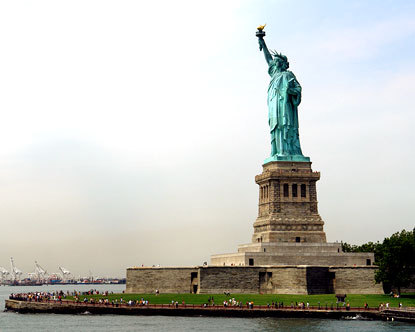 https://blogger.googleusercontent.com/img/b/R29vZ2xl/AVvXsEhDMWM3P-aKkjDx32Ozli_fdZPVMXKvlVm35njQkBoG41ZUK7xp6CjRqOsbgV4gCE8JZqaUyWzCWu8zT0Ai4kabpNB1bu3L_P5hH_5jV3s6IwKdG0nbBCJQK_cHE7vOxT7uyeQEopSqL-MJ/s640/Accommodation+in+North+America.jpg
https://blogger.googleusercontent.com/img/b/R29vZ2xl/AVvXsEhDMWM3P-aKkjDx32Ozli_fdZPVMXKvlVm35njQkBoG41ZUK7xp6CjRqOsbgV4gCE8JZqaUyWzCWu8zT0Ai4kabpNB1bu3L_P5hH_5jV3s6IwKdG0nbBCJQK_cHE7vOxT7uyeQEopSqL-MJ/s640/Accommodation+in+North+America.jpgTravel North America: Stacey of One Travels Far travelinksites.com
and BELIZE is the border between North America and central America
North America, the planet’s 3rd largest continent, includes 23
OIP.M96834891f69574ff7c2a9794d62987efo0
14A56730DC23C58325D991E8EB253D8361A504525http://www.mapsofworld.com/travel/north-america
Embed Our image to your website
ThumbnailEmbed Our image to a Forum
ThumbnailImagemapsofworld.com
North America Travel Map – showing the famous tourist attractions of
north america travel The Diverse Lands of North Americahttp://paradiseintheworld.com/wp-content/uploads/2012/01/north-america-travel.jpgtravel north america
Journey is the movement of folks between relatively distant physical locations, and can involve travel by foot, bike, automobile, train, boat, plane, or other means, with or without luggage, and can be one way or round trip. Traveling can have relatively brief stays between successive movements.
The origin of the word "travel" is most likely lost to history. The term "travel" may originate from the Old French word travail. According to the Merriam Webster dictionary, the first known use of the phrase travel was in the fourteenth century. Additionally, it states that the word originates from Middle English travailen, travelen (which means to torment, labour, strive, journey) and before from Old French travailler (which means to work strenuously, toil). In The english language we still occasionally use what travail and action, which mean struggle. In accordance to Simon Winchester in his book The very best Travelers' Tales (2004), the words travel and travail both discuss an even more old root: a Roman device of torture called the tripalium (in Latin it means "three stakes", as in to impale). This link reflects the extreme difficulty of travel in olden days. Also note the torturous connotation of the word "travailler. " Today, travel may or might not exactly be easier depending after the destination you choose (i. e., Mt. Everest, the Amazon rainforest), how you plan to get there (tour bus, cruise ship, or oxcart), and whether or not you decide to "rough it (see extreme tourism and adventure travel). "There's a huge difference between simply being a tourist and becoming a true world traveler, inches notes travel writer Eileen Kasum. This is, however, a contested distinction as academic work on the cultures and sociology of travel has noted.
Reasons for traveling include fun, tourism or vacationing, research travel for the gathering of information, for vacation to visit people, offer travel for charity, immigration to commence life somewhere else, religious pilgrimages and mission trips, business travel, trade, commuting, and other reasons, such as to obtain health care or waging or fleeing war or for the enjoyment of traveling. Travel may occur by human-powered transport such as walking or bicycling, or with vehicles, such as public transport, cars, trains and airplanes.
Reasons traveling include:
- pleasure
- leisure
- discovery and exploration
- getting to know other ethnicities
- taking personal moment for building interpersonal relationships
Travel may be local, regional, national (domestic) or international. Within some countries, non-local interior travel may require an internal passport, while international travel typically requires a passport and visa. A new trip can also be part of a round-trip, the industry particular type of travel where a person moves from one location to another and returns.
Once difficult, slow and dangerous, travel has tended to become easier, quicker, and much more frivolous in the course of background. The evolution of technology such as horse tack and bullet trains has contributed to this trend.
Government bodies emphasize the value of taking precautions to ensure travel safety. When traveling overseas, the odds favor a safe and incident-free journey, however, travelers can be subject to difficulties, offense and violence. Some security considerations include being aware of one's surroundings, staying away from being the target of any crime, leaving copies on the passport and itinerary information with trusted people, getting medical insurance valid in the country being went to and registering with a person's national embassy when being released on the in a foreign country. Many countries do not recognize drivers' licenses from a different nation; however most countries accept international driving permits. Car insurance policies issued in their own country are often invalid in foreign countries, plus its often a requirement to obtain momentary auto insurance valid in the country being visited. That is also a good idea to become oriented with the driving-rules and -regulations of vacation spot countries. Wearing a chair belt is highly highly recommended for safety reasons; many countries have penalties for breaking seatbelt laws.
Ski Travel: North America’s most beautiful landscapes Toronto Star
 https://www.thestar.com/content/dam/thestar/life/travel/2012/11/08/ski_travel_north_americas_most_beautiful_landscapes_1/heavenly_ski_resort_lake_tahoecalifornia.jpeg.size.custom.crop.1086x722.jpg
https://www.thestar.com/content/dam/thestar/life/travel/2012/11/08/ski_travel_north_americas_most_beautiful_landscapes_1/heavenly_ski_resort_lake_tahoecalifornia.jpeg.size.custom.crop.1086x722.jpgnorthamericamap.gif 1000×1241 Travel North America Pinterest
 https://s-media-cache-ak0.pinimg.com/originals/a8/af/40/a8af4044702660b6a5e668d9e163dfef.jpg
https://s-media-cache-ak0.pinimg.com/originals/a8/af/40/a8af4044702660b6a5e668d9e163dfef.jpgNORTH AMERICA
1Up Travel Maps of North America Continent. North America [Political
OIP.M4d46c7da17f011662834a2982e87a327o0
3BA33A7D6984BF27D09BDE262C8B93870D5573C87http://paradiseintheworld.com/the-diverse-lands-of-north-america/
Embed Our image to your website
ThumbnailEmbed Our image to a Forum
ThumbnailImageparadiseintheworld.com
north america travel The Diverse Lands of North America
Travel To North America Royalty Free Stock Image Image: 31945386http://thumbs.dreamstime.com/z/travel-to-north-america-toy-airplane-push-pin-map-31945386.jpgtravel north america
Travel is the movement of individuals between relatively distant physical locations, and can include travel by foot, bicycle, automobile, train, boat, aircraft, or other means, with or without luggage, and can be one way or round trip. Journey can also include relatively brief stays between successive movements.
The origin of the word "travel" is most likely lost to background. The term "travel" may originate from the Old French word travail. In accordance to the Merriam Webster dictionary, the first known use of the word travel was in the fourteenth century. In addition, it states that the word arises from Middle English travailen, travelen (which means to torment, labour, strive, journey) and earlier from Old French travailler (which means to work strenuously, toil). In British we still occasionally use the text travail and opération, which mean struggle. According to Simon Winchester in his book The most effective Travelers' Tales (2004), the words travel and travail both reveal an even more old root: a Roman device of torture called the tripalium (in Latin it means "three stakes", as in to impale). This particular link reflects the extreme difficulty of travel in olden days. Also note the torturous connotation of the word "travailler. " Today, travel may or might not be much simpler depending on the destination you choose (i. e., Mt. Everest, the Amazon rainforest), how you plan to get there (tour bus, cruise trip ship, or oxcart), and whether or not you decide to "rough it (see extreme tourism and adventure travel). "There's a large difference between simply being a tourist and being a true world traveler, inches notes travel writer Eileen Kasum. This is, however, a contested distinction as academic work on the cultures and sociology of travel has noted.
Factors for traveling include fun, tourism or vacationing, research travel for the accumulating of information, for getaway to visit people, volunteer travel for charity, immigration to get started life anywhere else, religious pilgrimages and mission trips, business travel, trade, commuting, and other reasons, such as to obtain health care or waging or fleeing war or for the enjoyment of traveling. Travel may take place by human-powered transport such as walking or riding a bicycle, or with vehicles, such as public transport, vehicles, trains and airplanes.
Causes traveling include:
- pleasure
- leisure
- discovery and exploration
- getting to know other ethnicities
- taking personal time for building interpersonal relationships
Travel may be local, regional, countrywide (domestic) or international. Inside some countries, non-local internal travel may require an internal passport, while international travel typically requires a passport and visa. A new trip may also be part of a round-trip, the industry particular type of travel whereby a person moves in one location to another and returns.
Once difficult, slow and dangerous, travel has tended to become easier, quicker, and much more frivolous in the course of historical past. The evolution of technology such as horse add and bullet trains has contributed to this trend.
Regulators emphasize the significance of taking precautions to ensure travel safety. When traveling overseas, the odds favor a safe and incident-free vacation, however, travelers can be subject to difficulties, offense and violence. Some protection considerations include being aware of one's surroundings, staying away from being the target of any crime, leaving copies of one's passport and itinerary information with trusted people, obtaining medical insurance valid in the country being visited and registering with a person's national embassy when arriving in a foreign country. Many countries do not recognize drivers' licenses from a different nation; however most countries acknowledge international driving permits. Auto insurance policies issued in their own country are often invalid in foreign countries, in fact it is often a need to obtain short-term car insurance valid in the country being visited. That is also highly recommended to get oriented with the driving-rules and -regulations of destination countries. Wearing a seats belt is extremely highly recommended for safety reasons; many nations have penalties for breaking seatbelt laws.
North America
North America Vacation Packages: Find Cheap Vacations to North America
 https://images.trvl-media.com/media/content/shared/images/travelguides/destination/180045/Monterey-25439.jpg
https://images.trvl-media.com/media/content/shared/images/travelguides/destination/180045/Monterey-25439.jpgNorth America Travel Guide North America Tourist Information North
North American Travel and Tourism gt; NA Travel Destinations
OIP.M0092286b6dedcc08bccc9dbc45c3cc3do0
2FCDC2F71CEA6DD00C58CCF4B8D6C17CC28876683http://www.dreamstime.com/royalty-free-stock-image-travel-to-north-america-toy-airplane-push-pin-map-image31945386
Embed Our image to your website
ThumbnailEmbed Our image to a Forum
ThumbnailImagedreamstime.com
Travel To North America Royalty Free Stock Image Image: 31945386
The United States Of Americahttp://www.travelaroundusa.com/uploads/2/4/0/0/24002860/us_physical_map.giftravel united states of america
Travel is the movement of folks between relatively distant geographical locations, and can include travel by foot, bike, automobile, train, boat, aircraft, or other means, with or without luggage, and can be one way or round trip. Travel can include relatively short stays between successive actions.
The origin of the word "travel" is most likely lost to historical past. The term "travel" may originate from the Old French word travail. In accordance to the Merriam Webster dictionary, the first known use of the phrase travel is at the fourteenth century. It also states that the word arises from Center English travailen, travelen (which means to torment, work, strive, journey) and before from Old French travailler (which means to work strenuously, toil). In British we still occasionally use the words travail and action, which mean struggle. Based to Simon Winchester in his book The Best Travelers' Tales (2004), what travel and travail both share an even more historic root: a Roman tool of torture called the tripalium (in Latin it means "three stakes", as in to impale). This specific link reflects the extreme difficulty of travel in ancient times. Also note the torturous connotation of the word "travailler. " Nowadays, travel may or might not exactly be much simpler depending when the destination you choose (i. e., Mt. Everest, the Amazon rainforest), how you plan to get there (tour bus, cruise trip ship, or oxcart), and whether or not you decide to "rough it (see extreme tourism and adventure travel). "There's a huge difference between simply being a tourist and as being a true world traveler, " notes travel writer Michael Kasum. This is, however, a contested distinction as academic work on the cultures and sociology of travel has noted.
Causes for traveling include fun, tourism or vacationing, research travel for the accumulating of information, for vacation to visit people, volunteer travel for charity, immigration to start life someplace else, religious pilgrimages and mission trips, business travel, trade, commuting, and other reasons, such concerning obtain health care or waging or fleeing war or for the enjoyment of traveling. Travel may take place by human-powered transport such as walking or bicycling, or with vehicles, such as public transport, vehicles, trains and airplanes.
Causes traveling include:
- pleasure
- rest
- discovery and exploration
- getting to know other cultures
- taking personal moment for building interpersonal relationships
Travel may be local, regional, nationwide (domestic) or international. In some countries, non-local inner travel may require an internal passport, while international travel typically requires a passport and visa. A new trip are often part of a round-trip, that is a particular type of travel whereby a person moves from location to another and returns.
Once difficult, slow and dangerous, travel has tended to become easier, quicker, and much more frivolous in the course of history. The evolution of technology such as horse tack and bullet trains has contributed to this trend.
Government bodies emphasize the benefit of taking precautions to ensure travel safety. When traveling overseas, the odds favor a safe and incident-free trip, however, travelers can be subject to difficulties, offense and violence. Some safety considerations include being aware of one's surroundings, avoiding being the target of the crime, leaving copies of the passport and itinerary information with trusted people, obtaining medical insurance valid in the country being went to and registering with a person's national embassy when being released on the in a foreign country. Many countries do not recognize drivers' licenses from a different nation; however most countries acknowledge international driving permits. Car insurance policies issued in one's own country are often invalid in foreign nations, plus its often a requirement to obtain momentary automobile insurance valid in the country being visited. That is also a good idea to get oriented with the driving-rules and -regulations of location countries. Wearing a seats belt is extremely a good idea for safety reasons; many countries have penalties for breaking seatbelt laws.
Fitzy39;s Web Site: Travel United States of America
Seattle Travel, United States of America Find holiday information
 https://images.trvl-media.com/media/content/shared/images/travelguides/destination/178307/Seattle-170823.jpg
https://images.trvl-media.com/media/content/shared/images/travelguides/destination/178307/Seattle-170823.jpgHomer Travel, United States of America Find holiday information
 https://images.trvl-media.com/media/content/shared/images/travelguides/destination/1497/Homer-190422.jpg
https://images.trvl-media.com/media/content/shared/images/travelguides/destination/1497/Homer-190422.jpgMalibu Travel, United States of America Find holiday information
 https://images.trvl-media.com/media/content/shared/images/travelguides/destination/10217/Malibu-124754.jpg
https://images.trvl-media.com/media/content/shared/images/travelguides/destination/10217/Malibu-124754.jpgOIP.M76d893a221fdf61084065ab1e1373018o0
10AF7EF3D98C3686FA7E047D59937D8EE202DDB46Ehttp://www.travelaroundusa.com/usa.html
Embed Our image to your website
ThumbnailEmbed Our image to a Forum
ThumbnailImagetravelaroundusa.com
The United States Of America
united states of america map Travel Guide to United States of Americahttp://paradiseintheworld.com/wp-content/uploads/2012/01/united-states-of-america-map.jpgtravel united states of america
Traveling is the movement of individuals between relatively distant physical locations, and can include travel by foot, bi-cycle, automobile, train, boat, plane, or other means, with or without luggage, and can be one way or round trip. Travel can include relatively short stays between successive actions.
The origin of the word "travel" is most likely lost to history. The term "travel" may originate from the Aged French word travail. Based to the Merriam Webster dictionary, the first known use of the term travel was in the fourteenth century. It also states that the word arises from Middle English travailen, travelen (which means to torment, work, strive, journey) and previously from Old French travailler (which means to work strenuously, toil). In The english language we still occasionally use the text travail and action, which mean struggle. In accordance to Simon Winchester in his book The Best Travelers' Tales (2004), the text travel and travail both reveal an even more ancient root: a Roman device of torture called the tripalium (in Latin it means "three stakes", as in to impale). This link reflects the extreme difficulty of travel in ancient times. Also note the torturous connotation of the word "travailler. " Nowadays, travel may or might not be much easier depending on the destination you choose (i. e., Mt. Everest, the Amazon rainforest), how you plan to get there (tour bus, luxury cruise ship, or oxcart), and whether or not you decide to "rough it (see extreme tourism and adventure travel). "There's a huge difference between simply being a tourist and being a true world traveler, inch notes travel writer Eileen Kasum. This is, however, a contested distinction as academic work on the cultures and sociology of travel has noted.
Causes for traveling include fun, tourism or vacationing, research travel for the collecting of information, for holiday to visit people, offer travel for charity, migration to get started life somewhere else, religious pilgrimages and mission trips, business travel, trade, commuting, and other reasons, such as to obtain health care or waging or fleeing war or for the enjoyment of traveling. Travel may happen by human-powered transport such as walking or bicycling, or with vehicles, such as public transport, cars, trains and airplanes.
Causes going include:
- pleasure
- rest
- discovery and exploration
- getting to know other ethnicities
- taking personal moment for building interpersonal relationships
Travel may be local, regional, nationwide (domestic) or international. Within some countries, non-local inner travel may require an internal passport, while international travel typically requires a passport and visa. A new trip are often part of a round-trip, the industry particular type of travel whereby a person moves from location to another and returns.
Once difficult, slow and dangerous, travel has tended to become easier, quicker, plus more frivolous in the course of background. The evolution of technology such as horse add and bullet trains has contributed to this trend.
Government bodies emphasize the significance of taking precautions to ensure travel safety. When traveling abroad, the odds favor a safe and incident-free journey, however, travelers can be subject to difficulties, crime and violence. Some safety considerations include being aware of one's surroundings, keeping away from being the target of any crime, leaving copies of the passport and itinerary information with trusted people, obtaining medical insurance valid in the country being went to and registering with a person's national embassy when coming in a foreign country. Many countries do not recognize drivers' licenses from other countries; however most countries accept international driving permits. Automobile insurance policies issued in a person's own country are often invalid in foreign nations around the world, and it is often a requirement to obtain momentary car insurance valid in the country being visited. That is also a good idea to be oriented with the driving-rules and -regulations of location countries. Wearing a chair belt is highly highly recommended for safety reasons; many countries have penalties for breaking seatbelt laws.
United States of America USA or U.S.A. Map Pictures The World
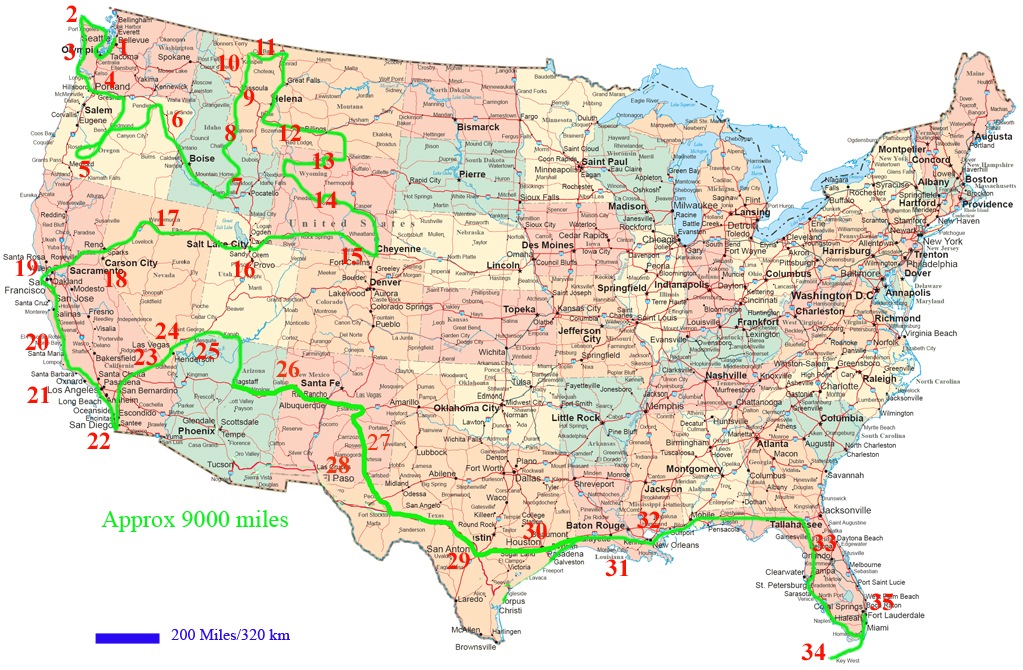 https://blogger.googleusercontent.com/img/b/R29vZ2xl/AVvXsEg76Pza4oS07Eaj7XUDsagQcqXiQGjQ6jdMADCPZDPeAT8Q3zQcHz_lHpGdOxAcOCZjs8WElLQUY7USbxF7SoMochBc9ddjq3_MWoguAE15xUXd7JC3-6-ZKrtT0wBHQFZhdhQ-lp3ftjFQ/s1600/road-map-of-usa-pictures.jpg
https://blogger.googleusercontent.com/img/b/R29vZ2xl/AVvXsEg76Pza4oS07Eaj7XUDsagQcqXiQGjQ6jdMADCPZDPeAT8Q3zQcHz_lHpGdOxAcOCZjs8WElLQUY7USbxF7SoMochBc9ddjq3_MWoguAE15xUXd7JC3-6-ZKrtT0wBHQFZhdhQ-lp3ftjFQ/s1600/road-map-of-usa-pictures.jpgTurns out, you don’t need a car to see America.
Family American Road Trip Traveling the United States for 1 Year
Celebration Travel, United States of America Find holiday
 https://images.trvl-media.com/media/content/shared/images/travelguides/destination/602896/Celebration-52163.jpg
https://images.trvl-media.com/media/content/shared/images/travelguides/destination/602896/Celebration-52163.jpgOIP.M01da03a4e76e53203a4c8f2906efd3eaH0
1812C9D6147DA8941E2607CF18EE501468A51F3EChttp://paradiseintheworld.com/united-states-of-america/
Embed Our image to your website
ThumbnailEmbed Our image to a Forum
ThumbnailImageparadiseintheworld.com
united states of america map Travel Guide to United States of America
Travel To North America Royalty Free Stock Image Image: 31945386http://thumbs.dreamstime.com/x/travel-to-north-america-toy-airplane-push-pin-map-31945386.jpgtravel north america
Traveling is the movement of folks between relatively distant geographical locations, and can require travel by foot, bi-cycle, automobile, train, boat, plane, or other means, with or without luggage, and can be one way or round trip. Traveling can include relatively quick stays between successive movements.
The origin of the word "travel" is most likely lost to background. The term "travel" may originate from the Older French word travail. According to the Merriam Webster dictionary, the first known use of the word travel was in the fourteenth century. It also states that the word originates from Center English travailen, travelen (which means to torment, labour, strive, journey) and earlier from Old French travailler (which means to work strenuously, toil). In English we still occasionally use what travail and travails, which mean struggle. In accordance to Simon Winchester in his book The most effective Travelers' Tales (2004), the text travel and travail both discuss an even more old root: a Roman tool of torture called the tripalium (in Latin it means "three stakes", as in to impale). This link reflects the extreme difficulty of travel in olden days. Also note the torturous connotation of the word "travailler. " Today, travel may or might not exactly be easier depending on the destination you choose (i. e., Mt. Everest, the Amazon rainforest), how you plan to get there (tour bus, luxury cruise ship, or oxcart), and whether or not you decide to "rough it (see extreme tourism and adventure travel). "There's a huge difference between simply being a tourist and being a true world traveler, inch notes travel writer Jordan Kasum. This is, however, a contested distinction as academic work on the cultures and sociology of travel has noted.
Causes for traveling include fun, tourism or vacationing, research travel for the gathering of information, for vacation to visit people, you are not selected travel for charity, migration to start life someplace else, religious pilgrimages and mission trips, business travel, trade, commuting, and other reasons, such as to obtain health care or waging or fleeing war or for the enjoyment of traveling. Travel may happen by human-powered transport such as walking or riding a bicycle, or with vehicles, such as public transport, automobiles, trains and airplanes.
Reasons going include:
- pleasure
- relaxation
- discovery and exploration
- getting to know other cultures
- taking personal moment for building interpersonal relationships
Travel may be local, regional, nationwide (domestic) or international. Within some countries, non-local internal travel may require an internal passport, while international travel typically requires a passport and visa. The trip are often part of a round-trip, that is a particular type of travel where a person moves from location to another and returns.
Once difficult, slower and dangerous, travel has tended to become easier, quicker, and much more frivolous in the course of background. The evolution of technology such as horse add and bullet trains has contributed to this trend.
Regulators emphasize the value of taking precautions to ensure travel safety. When traveling overseas, the odds favor a safe and incident-free journey, however, travelers can be subject to difficulties, offense and violence. Some protection considerations include being aware of one's surroundings, keeping away from being the target of the crime, leaving copies of the passport and itinerary information with trusted people, obtaining medical insurance valid in the country being went to and registering with a person's national embassy when arriving in a foreign country. Many countries do not recognize drivers' licenses from other countries; however most countries acknowledge international driving permits. Car insurance policies issued in their own country are often invalid in foreign nations, plus its often a need to obtain momentary automobile insurance valid in the country being visited. It is also recommended to be oriented with the driving-rules and -regulations of location countries. Wearing a seats belt is highly recommended for safety reasons; many countries have penalties for breaking seatbelt laws.
North America Map, North America Atlas, North America Travel Map
Pilgrim offers 10039;s of options for custom planned group itineraries
Baby map of the USA. The US map for kids Vidiani.com Maps of all
Map Of North America Continent. North and South America [Political Map
OIP.M2d10cc7236591d343b20f51af88772c7o0
4FCDC2F71CEA6DD00C58CFECDEDEB80794102488Dhttp://www.dreamstime.com/royalty-free-stock-image-travel-to-north-america-toy-airplane-push-pin-map-image31945386
Embed Our image to your website
ThumbnailEmbed Our image to a Forum
ThumbnailImagedreamstime.com
Travel To North America Royalty Free Stock Image Image: 31945386
United States of America » Travelhttp://reflectim.com/wp-content/uploads/2016/05/map-of-usa.giftravel united states of america
Travel is the movement of men and women between relatively distant physical locations, and can require travel by foot, bi-cycle, automobile, train, boat, plane, or other means, with or without luggage, and can be one way or round trip. Travel can also include relatively quick stays between successive movements.
The origin of the word "travel" is most likely lost to background. The term "travel" may originate from the Aged French word travail. Based to the Merriam Webster dictionary, the first known use of the phrase travel was at the fourteenth century. Additionally, it states that the word comes from Midsection English travailen, travelen (which means to torment, work, strive, journey) and previously from Old French travailler (which means to work strenuously, toil). In English we still occasionally use the words travail and action, which mean struggle. According to Simon Winchester in his book The most effective Travelers' Tales (2004), what travel and travail both share an even more ancient root: a Roman tool of torture called the tripalium (in Latin it means "three stakes", as in to impale). This specific link reflects the extreme difficulty of travel in olden days. Also note the torturous connotation of the word "travailler. " Nowadays, travel may or might not exactly be much easier depending when the destination you choose (i. e., Mt. Everest, the Amazon rainforest), how you plan to get there (tour bus, luxury cruise ship, or oxcart), and whether or not you decide to "rough it (see extreme tourism and adventure travel). "There's a major difference between simply being a tourist and as being a true world traveler, inches notes travel writer Eileen Kasum. This is, however, a contested distinction as academic work on the cultures and sociology of travel has noted.
Causes for traveling include entertainment, tourism or vacationing, research travel for the accumulating of information, for getaway to visit people, you are not selected travel for charity, immigration to start life someplace else, religious pilgrimages and mission trips, business travel, trade, commuting, and other reasons, such as to obtain health care or waging or fleeing war or for the enjoyment of traveling. Travel may occur by human-powered transport such as walking or bicycling, or with vehicles, such as public transport, automobiles, trains and airplanes.
Reasons to travel include:
- pleasure
- rest
- discovery and exploration
- getting to know other civilizations
- taking personal time for building interpersonal relationships
Travel may be local, regional, national (domestic) or international. Inside some countries, non-local internal travel may require an internal passport, while international travel typically requires a passport and visa. A new trip can also be part of a round-trip, that is a particular type of travel whereby a person moves from location to another and returns.
Once difficult, slower and dangerous, travel has tended to become easier, quicker, plus more frivolous in the course of background. The evolution of technology such as horse tack and bullet trains has written for this trend.
Government bodies emphasize the value of taking precautions to ensure travel safety. When traveling abroad, the odds favor a safe and incident-free trip, however, travelers can be subject to difficulties, crime and violence. Some security considerations include being aware of one's surroundings, staying away from being the target of a crime, leaving copies of the passport and itinerary information with trusted people, getting medical insurance valid in the country being went to and registering with a person's national embassy when being released on the in a foreign country. Many countries do not recognize drivers' licenses from a different nation; however most countries accept international driving permits. Automobile insurance policies issued in a person's own country are often invalid in foreign countries, and it is often a necessity to obtain short-term car insurance valid in the country being visited. This is also recommended to be oriented with the driving-rules and -regulations of vacation spot countries. Wearing a seats belt is highly recommended for safety reasons; many nations around the world have penalties for breaking seatbelt laws.
United States of America travel guide Wikitravel
Online Maps: United States Map for Children
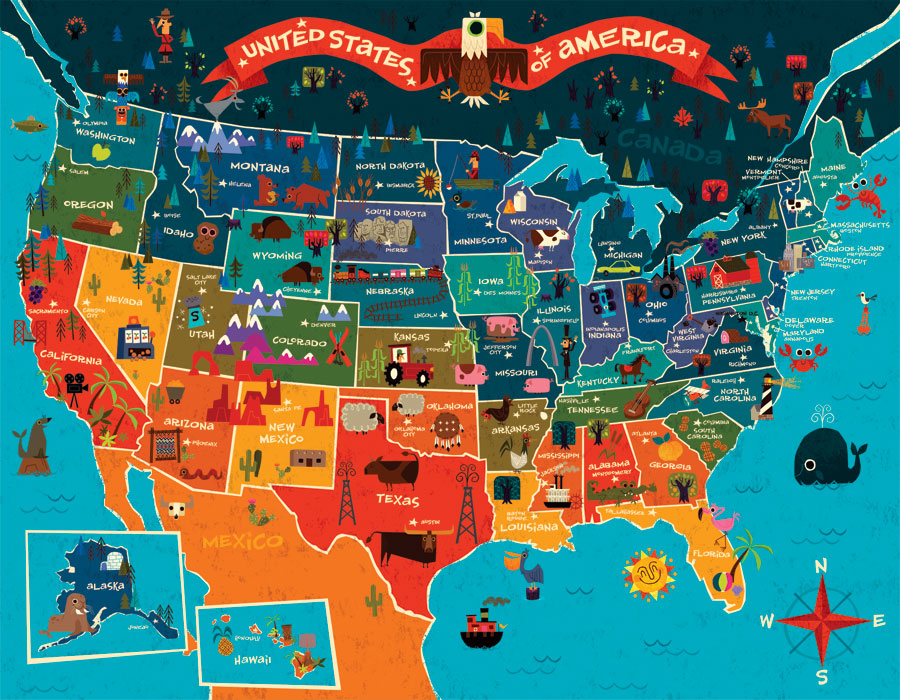 https://blogger.googleusercontent.com/img/b/R29vZ2xl/AVvXsEhEQT7sTxpJWIxmsvWlshSketfVtAMD2exXdH-K_3aHwYrQJem9j_-M7jsp29fmZh4_-0zlCM3jm3jJ4k9r_MLR6YwRhDFeVHQCPlMORJSjnARvBCbMWdDLz-XXND3AvSz199Z2IULJbtUM/s1600/united_states_map_for_children.jpg
https://blogger.googleusercontent.com/img/b/R29vZ2xl/AVvXsEhEQT7sTxpJWIxmsvWlshSketfVtAMD2exXdH-K_3aHwYrQJem9j_-M7jsp29fmZh4_-0zlCM3jm3jJ4k9r_MLR6YwRhDFeVHQCPlMORJSjnARvBCbMWdDLz-XXND3AvSz199Z2IULJbtUM/s1600/united_states_map_for_children.jpgStamps with United States of America Travel Conceptual
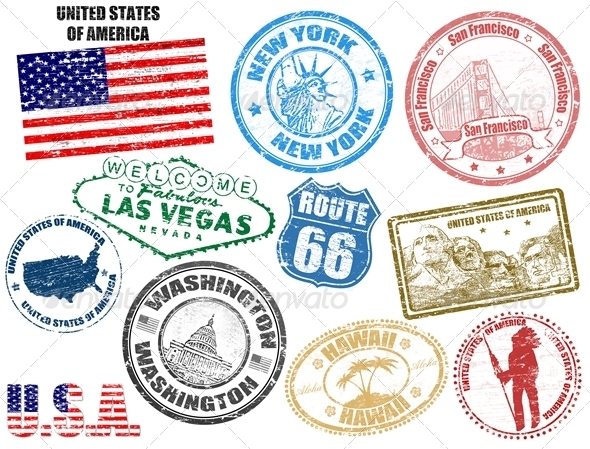 https://0.s3.envato.com/files/15070245/ASFSD2.jpg
https://0.s3.envato.com/files/15070245/ASFSD2.jpgMy USA kids map of America is now available as a Ravensburger floor
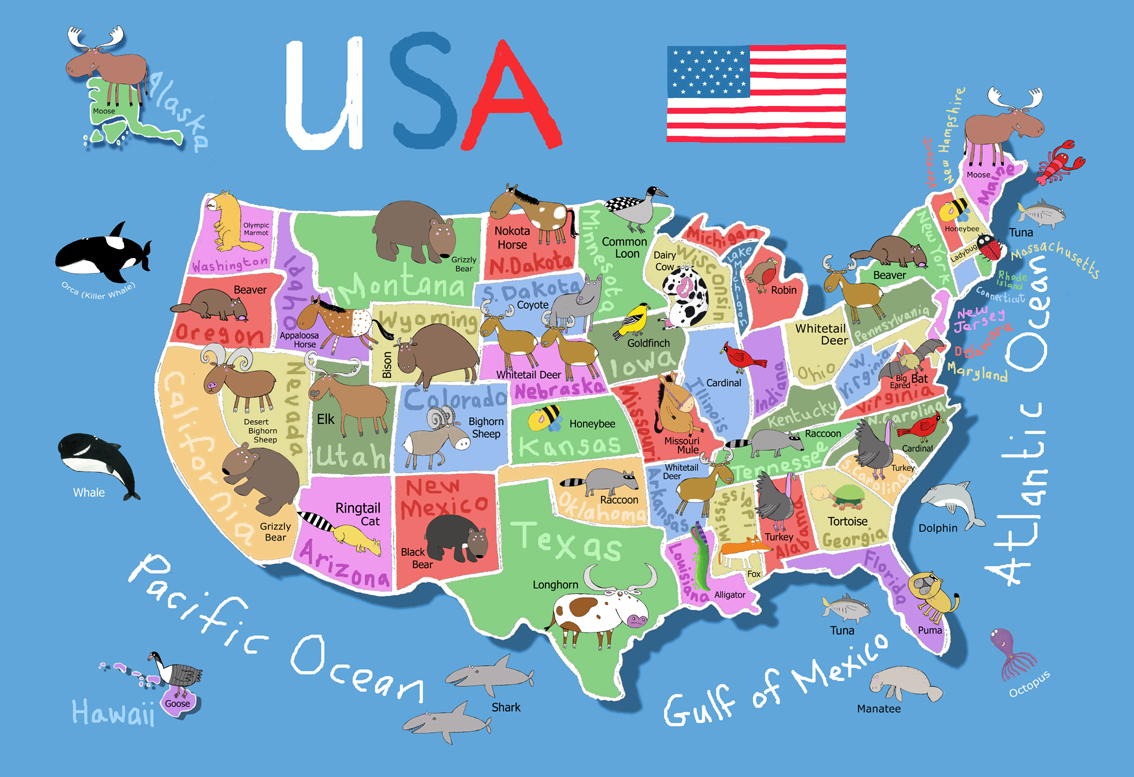 https://blogger.googleusercontent.com/img/b/R29vZ2xl/AVvXsEgW28P6jPwCIHwYRpl0mcdhVP9TM6q8SsYJynP_19xtzfZGS1pgheaZCStxkfRmMNj0yV0S_TtuqwSdSjm6jiAZYijRkuIYe8vfVuVdflkZcfOkLyraL5le1WlFGDWbK22shZpe_bEbDls8/s1600/USA72.jpg
https://blogger.googleusercontent.com/img/b/R29vZ2xl/AVvXsEgW28P6jPwCIHwYRpl0mcdhVP9TM6q8SsYJynP_19xtzfZGS1pgheaZCStxkfRmMNj0yV0S_TtuqwSdSjm6jiAZYijRkuIYe8vfVuVdflkZcfOkLyraL5le1WlFGDWbK22shZpe_bEbDls8/s1600/USA72.jpgOIP.Me919f19dd4b0644dcc460a8d12bc3291o0
76D83D6F07BF729C35EF24F5BE41DEA5C765F091Chttp://reflectim.com/travel/united-states-of-america/
Embed Our image to your website
ThumbnailEmbed Our image to a Forum
ThumbnailImagereflectim.com


